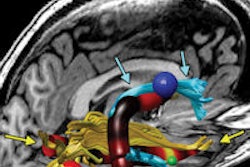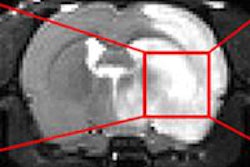Monday, December 1 | 11:10 a.m.-11:20 a.m. | SSC09-05 | Room N229
Using diffusion-tensor MRI (DTI-MRI), researchers from the University of Pittsburgh Medical Center have found a relationship between brain injury and subsequent depression among young patients.Led by Dr. Joseph Delic in the department of radiology, the study showed that white-matter injury severity in the brain correlated with depression: the more severe the injury, the greater the likelihood of depression.
DTI was used to measure water flow in the brain and generate fractional anisotropy maps for 75 patients with mild traumatic brain injury. Delic and colleagues also performed neurocognitive tests on the subjects.
DTI-MRI showed greater severity and variability in injuries in patients with depression after a mild traumatic brain injury. There was no significant difference in injury severity or variability among other major postconcussive symptoms evaluated.
Because more severe overall white-matter injury was seen in younger patients, in those with sports-related injuries, and in those with depression after mild traumatic brain injury, more attention should be given to these groups in future clinical trials and interventions, the researchers concluded.




















